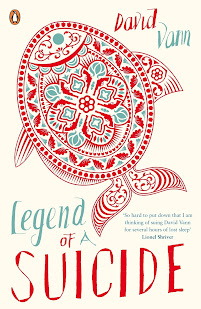Purple Hibiscus
by Chimamanda Ngozi Adichie
Hello Charlie, It has been a long time !
I'm come back with a new article about a book I really enjoy and I wanted to share.
Chimamanda Ngozi Adichie is a fabulous Nigerian writer who wrote "We should all be feminist", which I strongly recommend too.
Before beginning, "We should all be feminist" and "Purple Hibiscus" are available at the school library, so do not hesitate to borrow it.
Let's discover Purple Hibiscus !

« An intoxicating story that is at once distinctly feminine, African and universal » Observer
From the beginning, I was caught up by the authenticity of this univers and I was fascinated by the Nigerian culture. I thought the book mixing politics involvement, religious belief and family as a community or as a tyranny, has to be fascinating. As the Observer told it, Purplus Hibiscus is an universal story in which everyone can identify itself.
The book is told through the perspective of a fifteen-year-old girl, Kambili. She is a young girl, quiet but an excellent student who idolizes her dad, an authoritarian violent Catholic patriarch. She is living in Enugu, Nigeria with her father, her submissive mother and her withdrawn brother, Jaja. A family, based on discipline and religion. Lost between fear and admiration toward their dad, Kambili and Jaja are not safe in their home since their dad makes them suffer from violent punishment. Thus, to protect them, they go to Nsukka, their Aunty Ifeoma’s home. There, Kambili discovers the real world, with its freedom and its joy. Kambili and Jaja are surprised by Ifeoma’s poverty and this new way of living, such as speaking freely at dinner time or the constant laughter in the house.
The character of Papa-Nnukwu is very important in Kambili’s evolution of thinking. When he moved to Nsukka because of his bad health, she first fears him as a « heathen » but she comes to know him and loves him as a grand-father, full of old traditional rituals and stories to tell. Him and his death are one of the striking events that contributes to Kambili’s open mind.
In my opinion, Papa-Nnukwu represents the Nigerian roots which Papa wants to forget. Through this book, colonialism is treated on a personal level. Papa is described as a « colonial product » : a black man who wants to assimilate the white culture, its modernity and its way of life, to obliterate his own origin. On the other hand, his sister Aunty Ifeoma’s struggles for racial equality and rejects the idea of whiteness-equals-superiority.
Furthermore, the fight of Nigeria’s independence could be a metaphore to Kambili’s growth. As she has to embrace her own culture and independence to grow up, Nigeria has to learn to become self-governing and autonomous.
Another very interesting character who supports Kambili in her progression is Father Amadi. I really loved him because he inspired me peace and calm and his presence created a feeling of protection. Kambili feels good with him and seems finally safe. Kambili fall in love with this young, handsome priest who gives her self-confidence and self-esteem.
The most memorable moment of the book is when she laughs for the first time thanks to Father Amadi at the stadium. The scene was forceful because I feel extremely good as if I was sharing this moment with them. When Kambili finally laughed, I feel relieved and joyful.
« Because Nsukka could free something deep inside your belly that would rise up to your throat and come out as a freedom song. A laughter. » This sentence told by Kambili at the end proves the importance of this new way of expression and her evolution about her behavior.
I was really struck by her impressive evolvement through the story, as she grows up, she becomes mature and she finally thinks by herself.
Some rough events forced her to move forward, her Aunty’s leaving to America, her dad’s death and her brother’s imprisonment. These lost are in reality the way she can finally progress by her own, making her personal choices, judging by herself, as an independent woman.
I really enjoyed reading this book because I felt immersed in Nigeria’s atmosphere and culture which I didn’t know. Moreover, the characters often speaks their native language, Igbo, what makes the story more reliable, authentic and realistic.
To conclude, I will try to explain the title of the book, which I found very meaningful. The hibiscus is a flower growing in Aunty Ifeoma’s garden, as Kambili grows up, the flower blossoms. This symbol represents the freedom and individuality Kambili has to reach. Finally she is the one who blossomed throughout the book.
I hope you enjoyed it and it made you want to read it !
If you already read it, do not hesitate to share your opinion in comments.
Bye Charlie !
